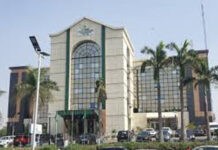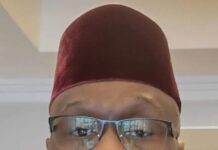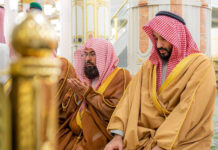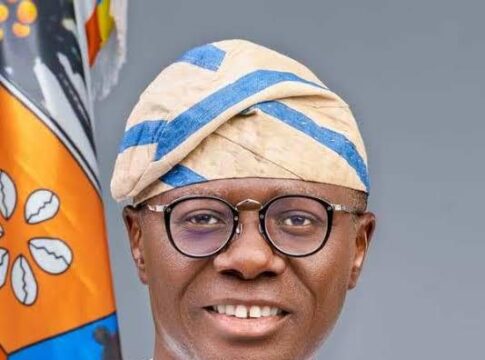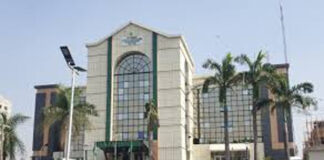By Taofeek Lawal
“When you expect the best, you release a magnetic force in your mind which by a law of attraction tends to bring the best to you.” – Norman Vincent Peale.
ThisQuote aptly captures the foresight of Lagos State Governor, Mr. Babajide Olusola Sanwo-Olu, whose wise counsel during the 2025 Eid-el-Fitr celebration laid the foundation for the successful Hajj operation this year.
At the event hosted by the First Family and the Ministry of Home Affairs at Lagos House, Marina, Governor Sanwo-Olu urged prospective pilgrims to prioritize their health, saying, “I appeal to those with health challenges to reconsider travelling for the 2025 Hajj.”
This cautionary advice was not lost on the Hon. Commissioner for Home Affairs and Amir-ul-Hajj, Hon. Olanrewaju Ibrahim Layode. In swift response, a team of medical professionals was commissioned to screen all intending pilgrims. The goal was to ensure that every participant was medically fit for the rigorous and spiritually demanding journey to the Holy Land, where intense desert heat—often exceeding 45°C—and physical exertion during the rites could pose serious health risks.
READ ALSO: Drugs Trafficking to Holy Land: The plight of three innocent pilgrims
READ ALSO: Lagos fixes November as deadline for payment of 2026 Hajj fare
The medical screening, coordinated by Dr. Mazeedat Erinosho of the Lagos State Ministry of Health, was extensive. Pilgrims were tested for HIV, Hepatitis B and C, Tuberculosis (TB), kidney function (Electrolyte, Urea, Creatinine), pregnancy (for women), and Full Blood Count (FBC).
The addition of TB and kidney function tests marked an upgrade from previous years. Thankfully, all pilgrims were certified fit, with only minor health concerns identified and managed proactively.
The medical initiative reflected not only care but also vision. Hajj is the fifth pillar of Islam and demands full physical and mental fitness, in addition to financial capability.
The Quran (22:27) enjoins Muslims: “And proclaim to the people the Hajj… they will come from every distant pass.” But fulfilling this obligation requires traversing significant distances under harsh conditions—Mina to Arafah (14.4km), Musdalifah to Jamarat (7km), and several kilometers for other rites.
While buses ease some movements, others—such as the symbolic stoning at Jamarat—require trekking and stamina.
Recognizing these challenges, the Lagos State Government bankrolled the entire medical screening process—an initiative that saved each pilgrim N50,000. Governor Sanwo-Olu and his deputy, Dr. Kadri Obafemi Hamzat, made this gesture to cushion the effect of the N8.78 million Hajj fare and ensure the health and safety of pilgrims.
The screening, which commenced officially at the Badagry Local Government Secretariat on April 19, 2025, was decentralized across ten designated centers statewide. Of the 1,400 pilgrims screened, 1,315 eventually secured visas. Importantly, not a single casualty was recorded during the Hajj. Except for minor ailments like headaches and fatigue, all pilgrims remained healthy and active throughout.
This achievement is attributable to not only divine grace but also the pilgrims’ cooperation. Unlike in previous years when some individuals bypassed screening or used proxies, the 2025 cohort fully complied. Medical personnel, led by Dr. Erinosho, remained active throughout the pilgrimage. Lagos-supplied drugs were distributed at clinic points in the pilgrims’ hotels without delay or complaints.
Beyond the medical screenings, Governor Sanwo-Olu’s generosity extended to other welfare provisions: monetization of Ihram clothing, daily breakfast and dinner of Nigerian delicacies, payment for Hadiyah (sacrificial) rams, and organized Ziyarah (visits) to historical religious sites in Makkah and Madinah. Pilgrims were also housed in Tent B+—an upgraded and comfortable tent facility at Mina and Arafah—alongside hotel accommodations located close to the Haram.
In a post-Hajj self-assessment, Hon. Layode proudly declared the operation a resounding success. Speaking at the return of the last batch of pilgrims at the Murtala Muhammed International Airport, he praised the pilgrims for their discipline and decorum in the Holy Land, calling them worthy ambassadors of Lagos State and Nigeria. He extended gratitude to Governor Sanwo-Olu and his deputy for the unprecedented support, particularly for the medical screenings that proved pivotal to the success of the entire Hajj operation.
On behalf of the pilgrims, the Central Working Committee (CWC), led by Dr. Ahmad Abdullahi Jebe, also expressed appreciation for the comprehensive care and planning. Dr. Jebe specifically praised the Lagos State Government for fulfilling all welfare promises and commended the Saudi Arabian Government for the smooth Hajj experience. He highlighted the role of NUSUK—an official identification pass issued by Saudi authorities—which granted pilgrims unrestricted access to key Hajj sites like Mina, Arafah, Musdalifah, and Jamarat.
Pilgrims were equally full of praise. Alhaja Kudirat Abolanle Adebayo, speaking upon arrival in Lagos, described Governor Sanwo-Olu as “Mr. Talk and Do,” commending the quality of food, medical attention, and spiritual guidance received during the pilgrimage. “We were taken to all historical sites for Ziyarah and received all the promised welfare packages. I urge future pilgrims to go through Lagos State for a fulfilling Hajj experience,” she said.
She also offered prayers for the success of the administration of Governor Sanwo-Olu and President Bola Ahmed Tinubu, and for continued excellence in future Hajj operations. Many other pilgrims echoed similar sentiments, affirming that Lagos State remains the benchmark for Hajj administration in Nigeria.
Secretary of the Lagos State Muslim Pilgrims Welfare Board, Mr. AbdulHakeem Ajomagberin, described the 2025 Hajj as the best yet, in terms of planning, preparation, and execution. He thanked Allah for the safety of every pilgrim and assured that preparations for the 2026 Hajj would begin promptly. Early planning, he noted, is essential to securing visas before Saudi Arabia’s portal closure and complying with all directives from the Saudi Ministry of Hajj and the National Hajj Commission of Nigeria (NAHCON).
In conclusion, the success of the 2025 Hajj exercise stands as a clear testament to what visionary leadership, collaborative planning, and compassionate governance can achieve. The free and compulsory medical screening sponsored by Governor Sanwo-Olu and his deputy was not just a health intervention—it was a life-saving initiative that set a new standard for pilgrimage preparation in Nigeria.
It is therefore not surprising that stakeholders have called for the institutionalization of the free medical screening in subsequent Hajj exercises, beginning with 2026.
Lagos State has once again demonstrated that when leadership places the wellbeing of its citizens at the center of policy and action, excellence is not just possible—it becomes inevitable.
Taofeek Lawal is the Deputy Director (Public Affairs) of the Lagos State Muslim Pilgrims Welfare Board, Old Secretariat, Ikeja.

